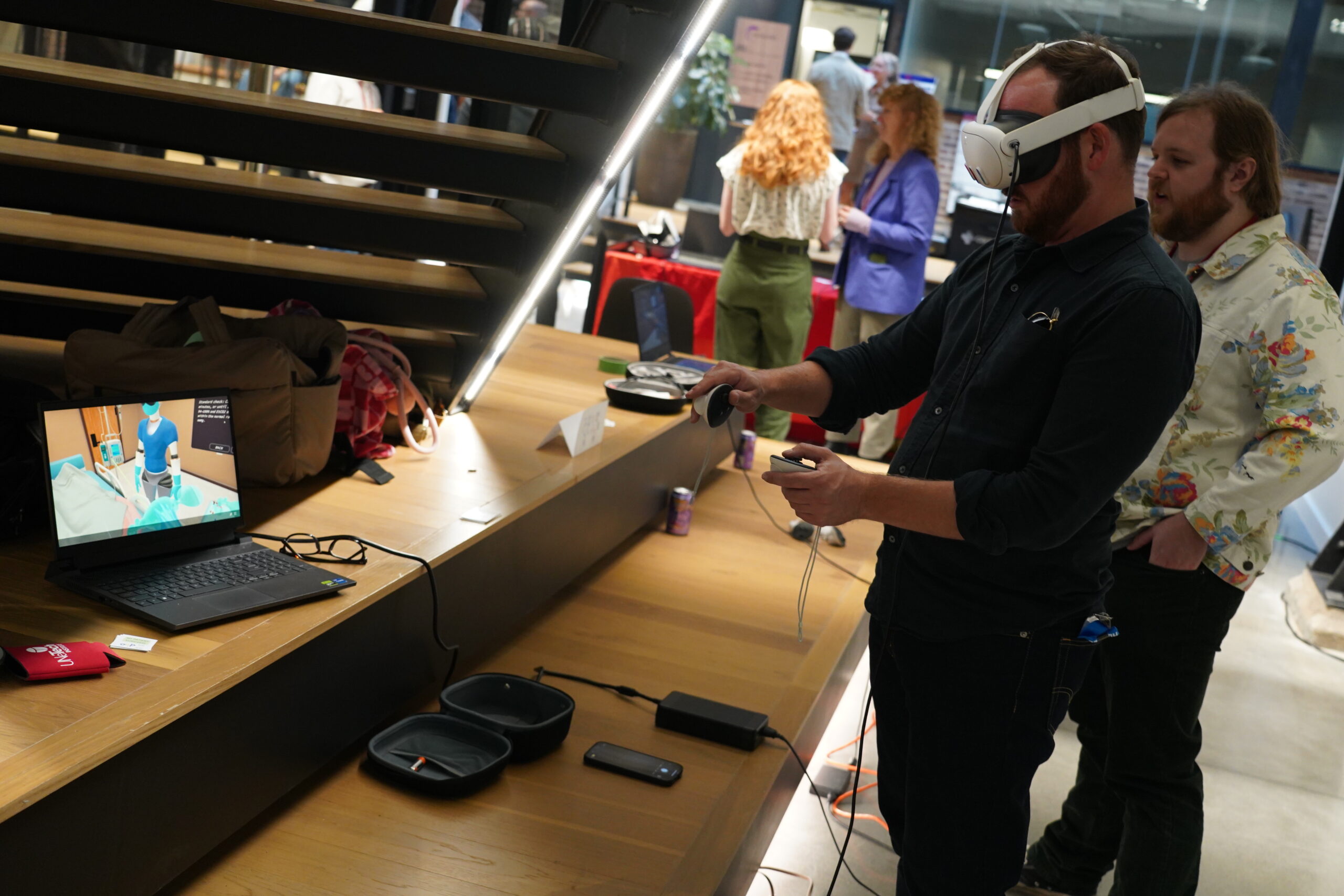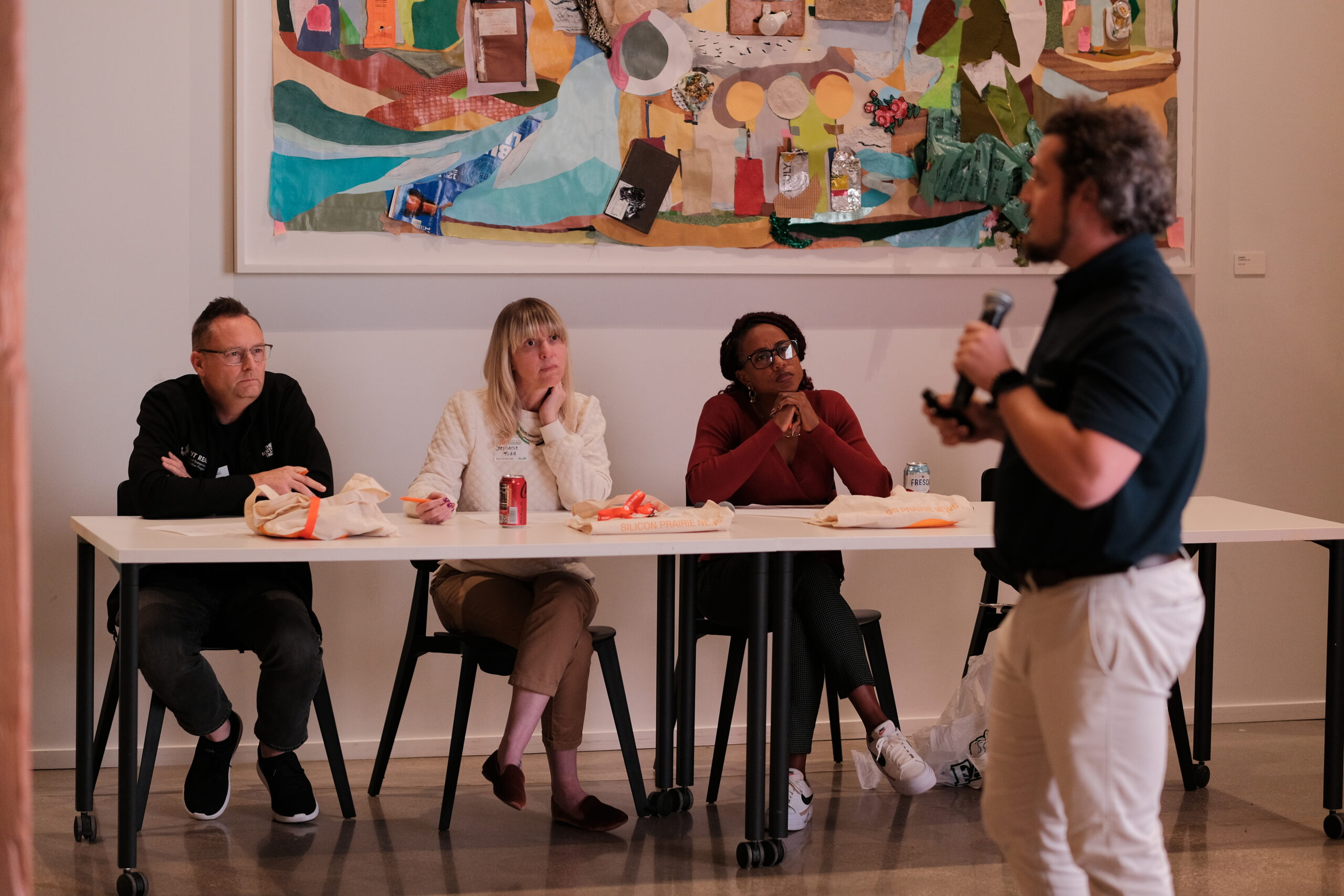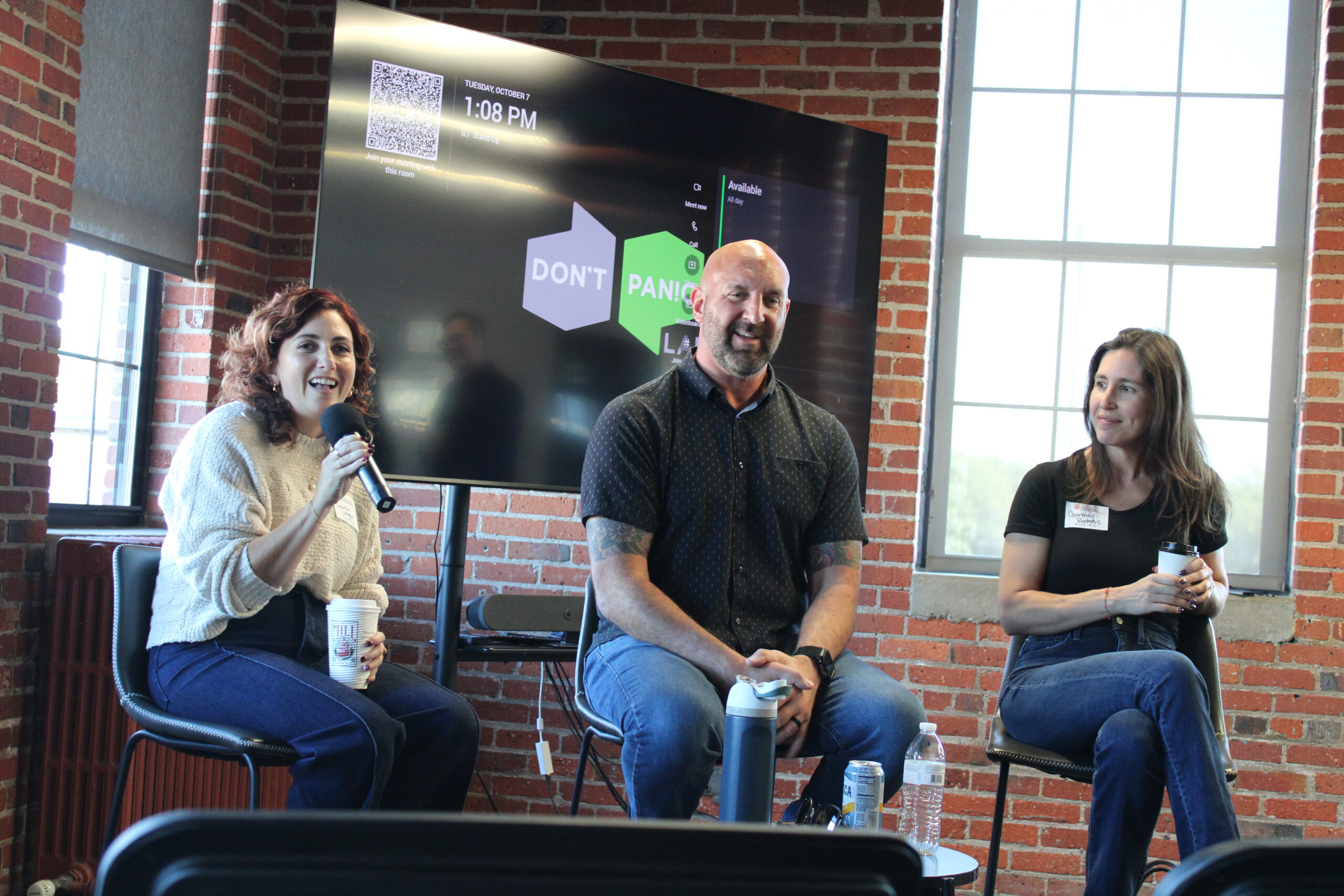
As CAMP Coworking celebrates its first full year in business, the space continues to evolve. Photo by Brittany Mascio.
 Last year when Megan Hunt signed her name to the lease for CAMP Coworking, it was in her interest to get her money back, and quickly. Within six months of opening the collaborative workspace in the Mastercraft building in North Downtown Omaha, she did. And now as CAMP looks to generate profit and celebrate its first full year in business, maintaining the integrity of the environment she has created is her next priority.
Last year when Megan Hunt signed her name to the lease for CAMP Coworking, it was in her interest to get her money back, and quickly. Within six months of opening the collaborative workspace in the Mastercraft building in North Downtown Omaha, she did. And now as CAMP looks to generate profit and celebrate its first full year in business, maintaining the integrity of the environment she has created is her next priority.
“We keep improving the space,” the bridal designer under the alias of Princess Lasertron said, “and my model has been culture over revenue.” (Left, Hunt, photo by Dave Homan via princesslasertron.com.)
From the start, resident CAMP counselor Hunt did her homework on pricing strategy. Compared to a Deskwanted survey, Hunt’s numbers were a modified reflection of the coworking trend: $350 rate per full-time tenant and $20 per day for drop-in CAMP guests. Additionally, she added a rewards program for drop-in guests and each received a punchcard granting benefits based on each visit.
For the first six months, CAMP operated on this model but for Hunt something wasn’t working. The permanent desks were filling but they were not full and there were few drop-ins and fresh faces setting up camp.
“If no one is here,” Hunt concluded, “this isn’t a collaborative space.”
So, Hunt knocked out the punchcards, cut the drop-in rates and opened the doors for guests – those who pop in to work for a few minutes or buckle down for the day – all for free.
“This was controversial,” Hunt said. “The brand of CAMP and co-working altogether was at stake. There were fears this would devalue the service.”

And, set-prices withstanding, CAMP Coworking started benefiting from the goodwill of their visitors almost immediately. Visitors felt free to drop in on their own time with less pressure to get their money’s worth, and organically through donations, the space increased its earnings. And, quelling CAMP’s biggest worry, this new model has even strengthen the space: more people, more collaboration, Hunt said.
This donation-based pricing strategy has also opened up CAMP to a larger role in the community. In addition to Startup Weekend Omaha, CAMP has also played host to company parties for Man Victories, community theatre rehearsals for Omaha Encyclopedia Show and even nonprofit events for Project Pink’d.
Corporate companies have also retreated – sans backpacks and bug spray – to CAMP for brain storming and break out sessions. Recently, Oriential Trading Company‘s web development team spent time at CAMP working on a iPad app, and Hunt said this denotes a trend. Coming from more traditional workspaces, corporate workers seem to enjoy the change of pace and open environment at CAMP and are willing to have a symbiotic relationship.
Hunt said that in CAMP’s first year, making these connections in the corporate world and embracing different companies has come as a pleasant surprise.
“We have a lot to learn on both sides,” Hunt said. “Anything that bridges the gap between corporations and independents, we’d like to be a part of that. We see this as a part of the community we can give back to.”
CAMP has seen a wide range of pop-in day tenants and retreat-ans, from writers and photographers to programmers and every once in a while even a CPA will join its ranks. Since its inception, the space has primarily been occupied by full-time tenants who are designers and creatives, but Hunt would love to include more programmers, developers and “tech people” as CAMP enters its second year.
“Sometimes people are afraid to go into an already established culture,” Hunt said, “but, we are welcome to all.”
With the foundation set for a mix of social and work interaction and a call to diversify CAMP-ers, Hunt said so far the environment CAMP has created validates the progress of their work. Many full-time tenants have expanded their projects and even added staff. In CAMP’s second year the goals are to harness the momentum and keep improving, keep investing and keep collaborating with its tenants, partners and community.
“There’s a big responsibility to be an entrepreneur,” Hunt said. “It’s a testament to how you work.
As CAMP ends its first year, Hunt provided us with a progress report and more insight on CAMP’s growth:

Currently there are two available full-time desks at CAMP and daily drop-ins are welcome. For more information on beginning phases of CAMP Coworking, see our June 2010 post: “Megan Hunt & Eric Downs set to open CAMP coworking space.”



